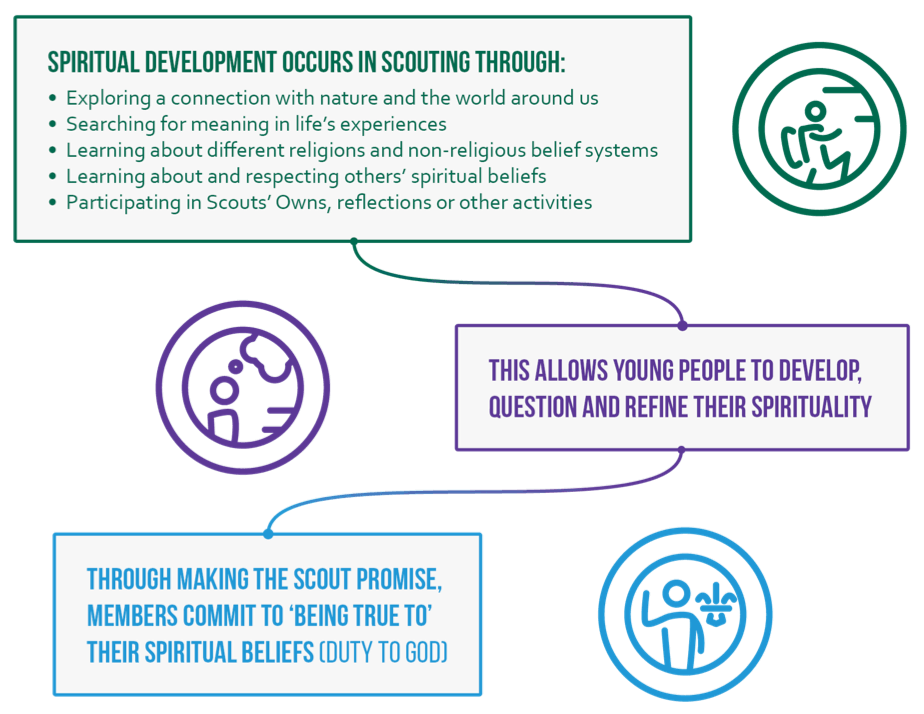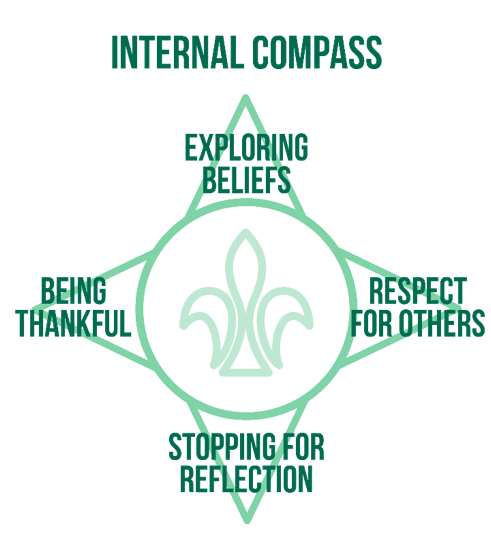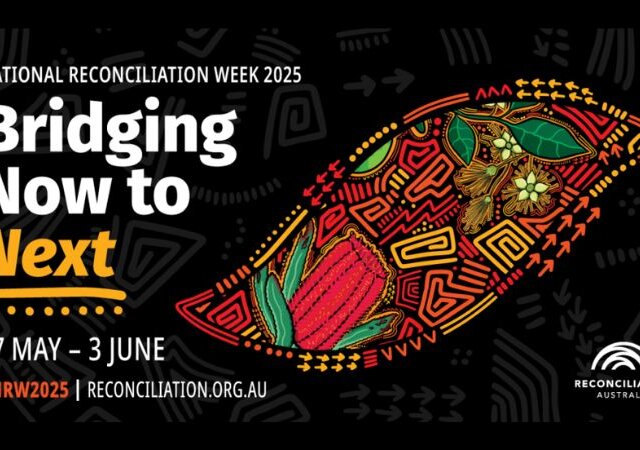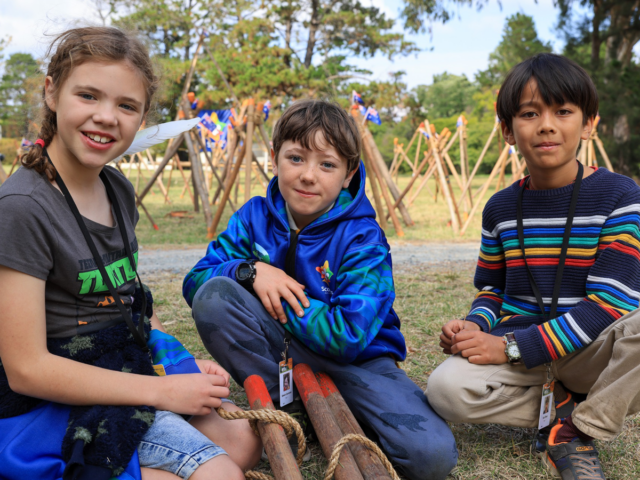New Youth Program
Unpacking the Internal Compass
![]()
The Internal Compass is a tool that helps guides spiritual development in the youth program. This tool comes into use during the Review> stage, of Plan>Do>Review> and may also be helpful when planning.
The Scout program develops youth of all ages in the six SPICES areas. Those areas are Spiritual, Physical, Intellectual, Character, Emotional, and Social development.
Spiritual development is an area which many find challenging to create rich developmental programs. The Internal Compass offers a framework for youth and adults to understand spirituality and Spiritual Development in Scouting, and to create interesting programs that encourage personal growth in this area.
Before looking at the Compass itself, it’s important to understand spirituality. While there are many different definitions and understandings, Scouts Australia defines spirituality in the following way:
“Spirituality refers to the feelings or beliefs of a person regarding their purpose in life, connection to others and place in the world around them. These spiritual feelings or beliefs may change as a person develops and guide their actions throughout their life.”
Scouts Australia Policy and Rules
The diagram in the next column demonstrates how Spirituality, Spiritual Development, and the worldwide Scouting principle of Duty to God, are interconnected in the youth program.

The Internal Compass points to four different aspects of spiritual development that programs can focus on. Like a navigational compass, the Internal Compass can help us to set our direction in life.
The Internal Compass serves mainly as a memory aid. It helps remind us of key opportunities within the program that help Scouts develop spiritually. During activities, you’ll recognise moments where spiritual development can be supported; the Internal Compass assists you by indicating what those experiences could be.
This tool could also come in handy during program planning. The points of the internal compass may help you come up with activity ideas within the Challenge Areas. This is particularly important to keep in mind if your Reviews> have shown a lack of spiritual development opportunities in the program.

Exploring Beliefs
A Scout explores spirituality in religious and non-religious forms, and thinks deeply about the different ways they may live their life
- Exploring religions
- Exploring non-religious systems of spiritual belief
- Exploring questions about the purpose and journey of life
Stopping for Reflection
A Scout pauses to reflect upon the Promise & Law as well as their own spiritual beliefs through a variety of means. These may include worship, meditation, prayer, conversation and contemplation
- Reflection upon the role that spiritual beliefs and the Scout Promise & Law play in our lives and how these develop over time
- Reflection upon how we may better live up to our own spiritual beliefs
- Reflection upon our connection with others and place in the world
Respect for Others
A Scout respects and acknowledges other people’s spiritual beliefs, and the value of diversity
- Respect for the different religious and spiritual beliefs others may hold
- Respect for the different social and cultural backgrounds that others may come from
- Respect for the value of diversity in the community
Being Thankful
A Scout is thankful for the many gifts of nature and the human community, and expresses this regularly
- Appreciation for the beauty of our natural and human world
- Appreciation for the relationships we share and the role others play in shaping our lives
- Appreciation for the opportunities available throughout our lives



